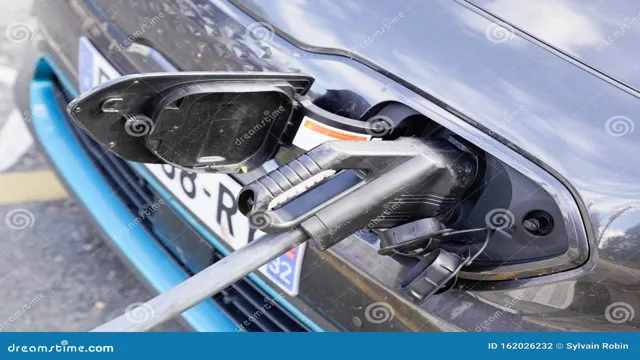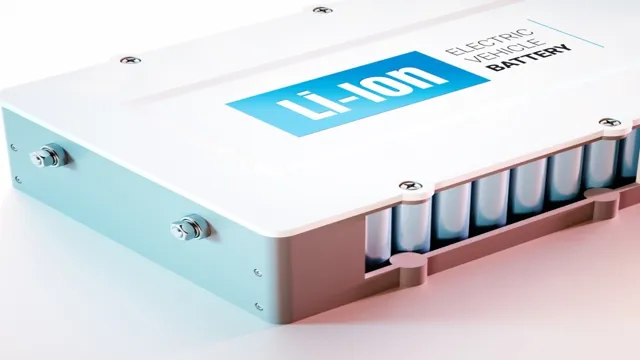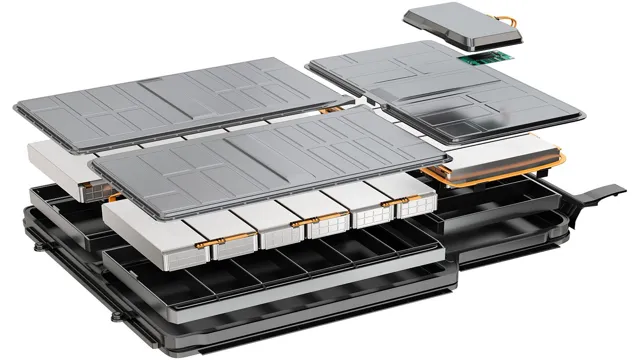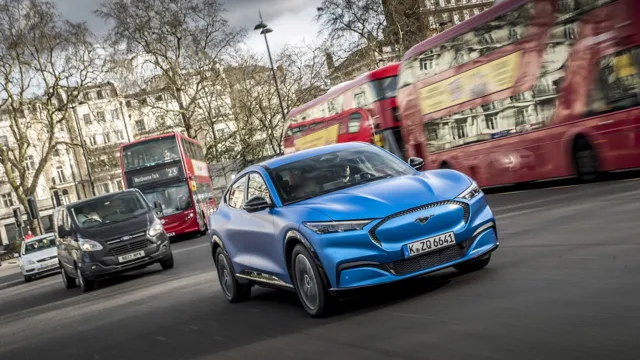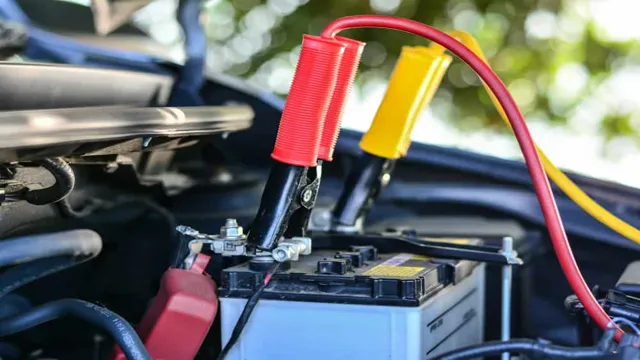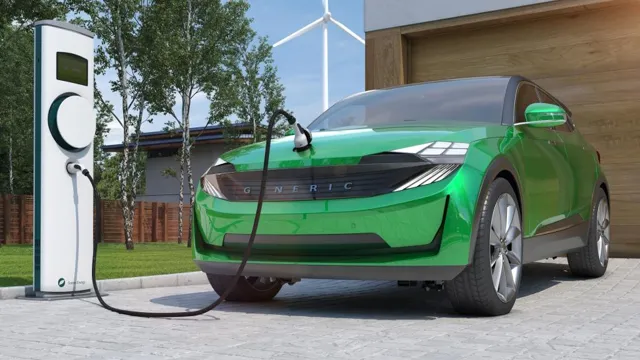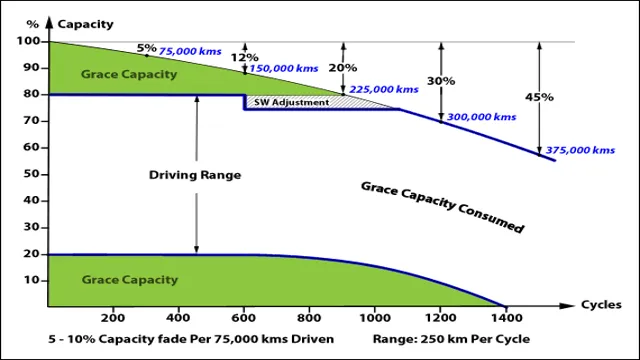A Revolutionary Change: The Power-Packed Battery of a Modern Electric Car
Electric cars have certainly been taking the world by storm in recent years, and for good reason. They are a great way to reduce carbon emissions and help protect our environment. However, what really makes them tick? The answer is simple yet complex: the power inside electric cars.
This power is what really sets electric cars apart from their petrol and diesel counterparts. In this blog post, we’ll delve into the intricacies of the power inside electric cars and how it functions to make them some of the most innovative machines on the road. Not to mention, the driving experience of an electric car is like no other and it all boils down to their unique power system.
So let’s take a closer look!
Battery Basics
A modern electric car carries a battery with a high capacity. These batteries are a crucial component that store energy to power the vehicle. Electric vehicle batteries are made up of multiple cells that are placed together in a pack.
The type of battery used in an electric car is usually a lithium-ion battery. It’s a type of rechargeable battery that is lightweight, durable, and has a long lifespan. Lithium-ion batteries are also the go-to battery for smartphones and laptops because they can be recharged multiple times without losing their capacity.
The range of an electric car is determined by the battery’s capacity, which measures in kilowatt-hours (kWh). For example, a Tesla Model S has a battery capacity of up to 100 kWh. When the battery is depleted, it needs to be recharged from an external energy source, like a charging station or a wall socket.
It’s important for electric car owners to monitor their batteries’ state of charge to ensure they have enough energy for their daily commute.
Lithium vs Other Materials
When it comes to batteries, the material used is crucial in determining its performance and efficiency. Lithium is a popular choice for battery manufacturers due to its high energy density and longer lifespan. Compared to other materials like nickel-cadmium and lead-acid, lithium-ion batteries can hold more charge and have a lower self-discharge rate, making them more reliable.
Additionally, lithium batteries are lightweight and compact, making them ideal for portable electronic devices such as smartphones and laptops. However, it’s important to note that other materials have their respective advantages, such as lead-acid being cheaper and nickel-cadmium being more durable. When deciding on a battery, it’s essential to consider the specific needs and uses to find the best fit.
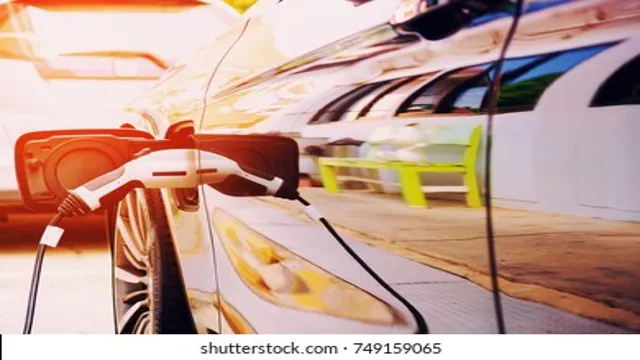
Battery Range Considerations
As electric vehicles continue to gain popularity, many people are wondering how to get the most out of their battery and optimize their driving range. It’s important to understand some battery basics- the term “range anxiety” is something that many EV drivers experience. Range anxiety is simply the fear of running out of battery power.
So, how can you maximize your battery’s range? First, understand that your driving habits will have a significant effect on your range. Aggressive driving, speeding, and frequent acceleration and deceleration can all drain your battery more quickly. On the other hand, adopting smooth, steady driving habits can help conserve your battery’s power and extend your range.
Additionally, factors like temperature and terrain can impact your battery’s performance. Extremely cold temperatures can decrease your range, while driving uphill for extended periods of time can also cause your battery to drain more quickly. By taking these factors into consideration, understanding the basics of how your battery works, and adopting smart driving habits, you can ensure that you get the most out of your electric vehicle and minimize any range anxiety you may experience.
The Future of Electric Car Batteries
A modern electric car carries a battery with a lot of power. But this isn’t the end game when it comes to electric car batteries. The future will likely see even better batteries that are longer-lasting, can charge more quickly, and are safer to use.
Researchers are currently exploring various materials and configurations for batteries, including lithium-sulfur and solid-state batteries. Lithium-sulfur batteries are lighter and cheaper than lithium-ion batteries, but they tend to degrade quickly. Solid-state batteries, on the other hand, are safer and more stable than the lithium-ion batteries currently used in electric cars.
The advent of better batteries will accelerate the adoption of electric cars, making them more affordable and practical for the average driver. Ultimately, the goal is to develop batteries that can offer a range of 500 miles on a single charge, which would rival the range of gasoline-powered vehicles. While we’re not there yet, the future is bright for electric car batteries and the automotive industry’s transition to more sustainable transportation.
Advancements in Battery Technology
The future of electric cars looks bright with the advancements being made in battery technology. We are moving towards more efficient and lightweight batteries that can store more energy, charge faster, and last longer. With these improvements, electric cars will be able to travel longer distances and compete with gasoline-powered vehicles.
One promising technology is solid-state batteries, which use a solid electrolyte instead of a liquid one. This makes them safer, more energy-dense, and less prone to overheating or catching fire. They also have the potential to charge faster than conventional lithium-ion batteries, taking only a few minutes to reach full capacity.
Another area of research is the use of lithium-sulfur batteries, which have a higher energy density than traditional lithium-ion batteries. They could theoretically double the range of electric cars, but challenges remain in improving their lifespan and preventing contamination of the cathode. Overall, these exciting developments in battery technology will not only benefit the electric vehicle industry but also have wide-ranging applications in renewable energy storage and portable electronics.
The future is electric, and with these advancements, it’s becoming a reality.
Charging Infrastructure Expansion
As electric cars gain popularity, the expansion of the charging infrastructure becomes increasingly essential. Charging stations must be readily available to accommodate the growing number of electric vehicles on the road. Improving battery technology is also crucial for EVs, and manufacturers are working to develop battery systems that offer greater range and faster charging times.
Many electric car owners fear running out of charge while driving, but technology advancements like regenerative braking and improved battery management systems help alleviate those concerns. As the future of electric cars unfolds, investing in charging infrastructure and battery technology will be essential for the widespread adoption of EVs.
Environmental Impact and Sustainability
The future of electric car batteries is constantly evolving, with the increasing demand for sustainable transportation. Automakers are investing heavily in research and development to create batteries that are more efficient, with longer range and shorter charging times. This will not only benefit the environment but also bring practical advantages to consumers.
The latest battery innovations use solid-state technology, which is safer and more stable than traditional lithium-ion batteries, reducing the risk of fire. Moreover, it involves less toxic materials, making it more environmentally friendly and easier to dispose of. The rechargeable batteries are also becoming more efficient, allowing longer driving range and faster charging times, addressing the issue of range anxiety that has deterred consumers from buying electric cars.
As the technology continues to advance, electric cars with long-lasting and sustainable batteries will become more mainstream, leading to a significant reduction of greenhouse gas emissions from traditional gasoline-fueled vehicles.
The Benefits of Going Electric
A modern electric car carries a battery with a capacity that can vary between 40 kWh to over 100 kWh, which provides a significant advantage in terms of fuel efficiency and environmental impact compared to traditional gas-powered cars. By using electricity as a fuel, electric vehicles reduce the consumption of fossil fuels and greenhouse gas emissions. This not only benefits the environment but also saves you money on gas and oil changes.
In addition, electric cars require less maintenance than traditional cars because they have fewer moving mechanical parts, such as pistons and gears, that can wear over time. The battery system in an electric car can also be recharged at home or at a public charging station, allowing for maximum flexibility and convenience. With the benefits of lower operating costs, reduced environmental impact, and a cleaner driving experience, it’s clear that electric cars are the way of the future.
Lower Cost of Ownership
Lower Cost of Ownership One of the biggest benefits of going electric is the lower cost of ownership. While the initial price of an electric vehicle may be more expensive than a traditional gas-powered car, studies have shown that over time, the cost of ownership for an electric car is significantly lower. This is due to several factors, such as lower fuel and maintenance costs.
With an electric vehicle, you don’t have to worry about gas prices or oil changes. You can simply plug your car in at home and charge it overnight. Plus, electric cars have fewer mechanical components, which means there are fewer parts that can break or wear out, resulting in lower maintenance costs.
Overall, electric cars can save you a lot of money in the long run, making them an attractive option for anyone looking to save money on their daily commute or monthly car expenses.
Eco-Friendly Driving Experience
If you’re looking for ways to cut down your carbon footprint and go green, switching to an electric vehicle may be the perfect solution. The benefits of driving an electric car are vast, both for the environment and for your wallet. For starters, electric cars produce significantly lower levels of harmful emissions compared to traditional gas-powered vehicles.
This reduction in emissions leads to cleaner air and a healthier environment overall. In addition, charging an electric car is much cheaper than filling up a gas tank, resulting in significant cost savings over time. Plus, with advancements in technology, electric cars are becoming more accessible and practical than ever before.
With all these benefits, it’s easy to see why more and more people are making the switch to electric vehicles. So why not join the movement and make a positive impact on the planet while enjoying all the perks of an eco-friendly driving experience?
Conclusion
A modern electric car carries a battery with a higher kilowatt-hour capacity than your average energy drink. But unlike the jolt of caffeine that makes you jittery, the electric car’s battery delivers a smooth and quiet ride, leaving you feeling more refreshed and energized than ever before. So, if you want to impress your friends with your eco-consciousness while enjoying a luxurious driving experience, it’s time to switch to electric and recharge your energy while saving the planet.
“
FAQs
How long does a modern electric car battery last on a single charge?
The range of a modern electric car battery on a single charge can vary, but it typically ranges from 100-300 miles.
Can you charge a modern electric car battery at home?
Yes, you can charge a modern electric car battery at home using a standard 120-volt outlet or a faster 240-volt outlet.
How long does it take to fully charge a modern electric car battery?
The time it takes to fully charge a modern electric car battery depends on the type of charger used, but it can range from a few hours to overnight.
Is it expensive to replace a modern electric car battery?
While the cost of replacing a modern electric car battery can vary, it can be more expensive than traditional car batteries. However, many car manufacturers offer warranties or battery leasing programs to reduce the cost.

